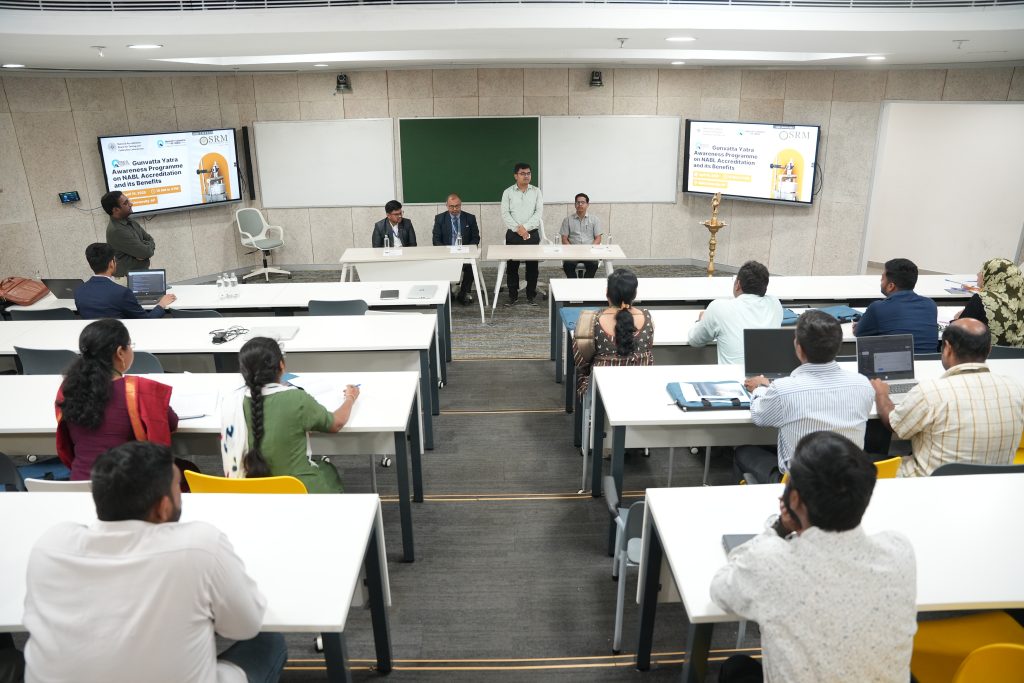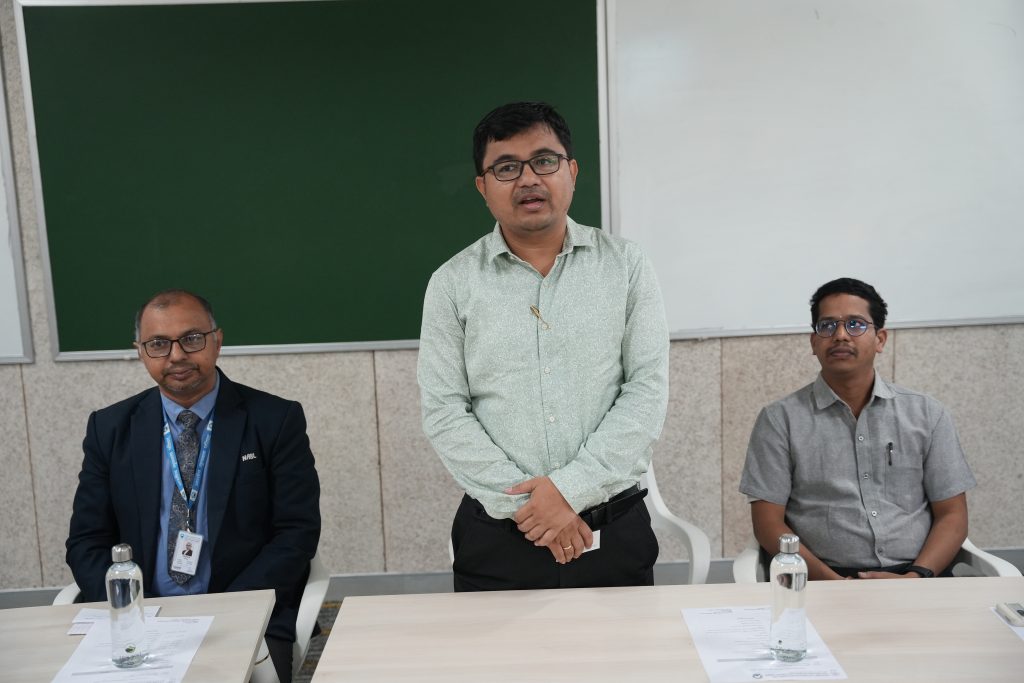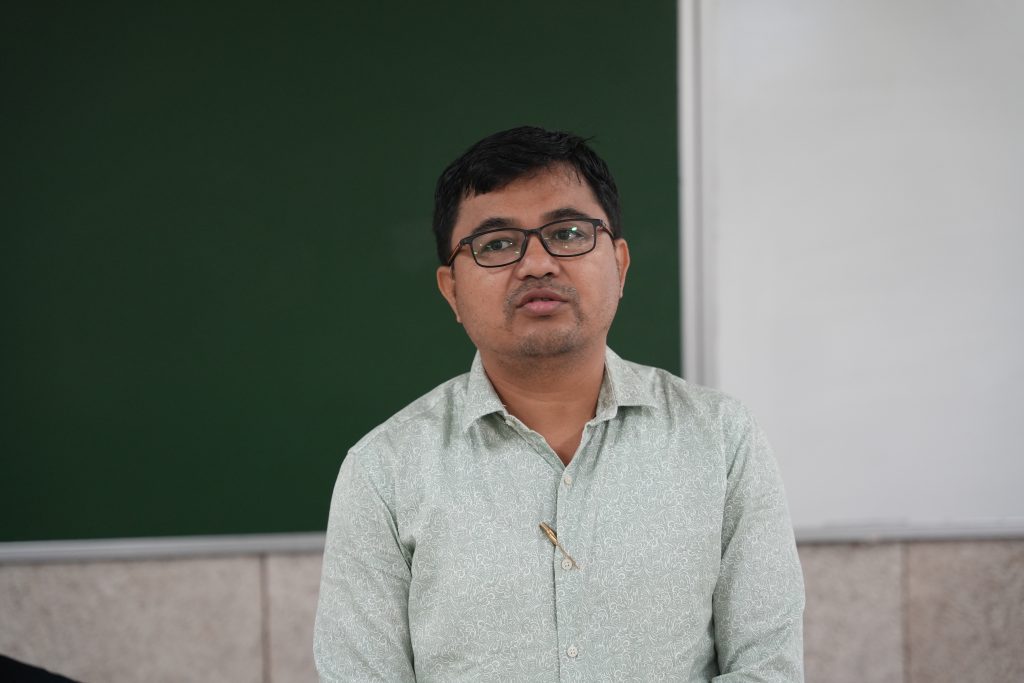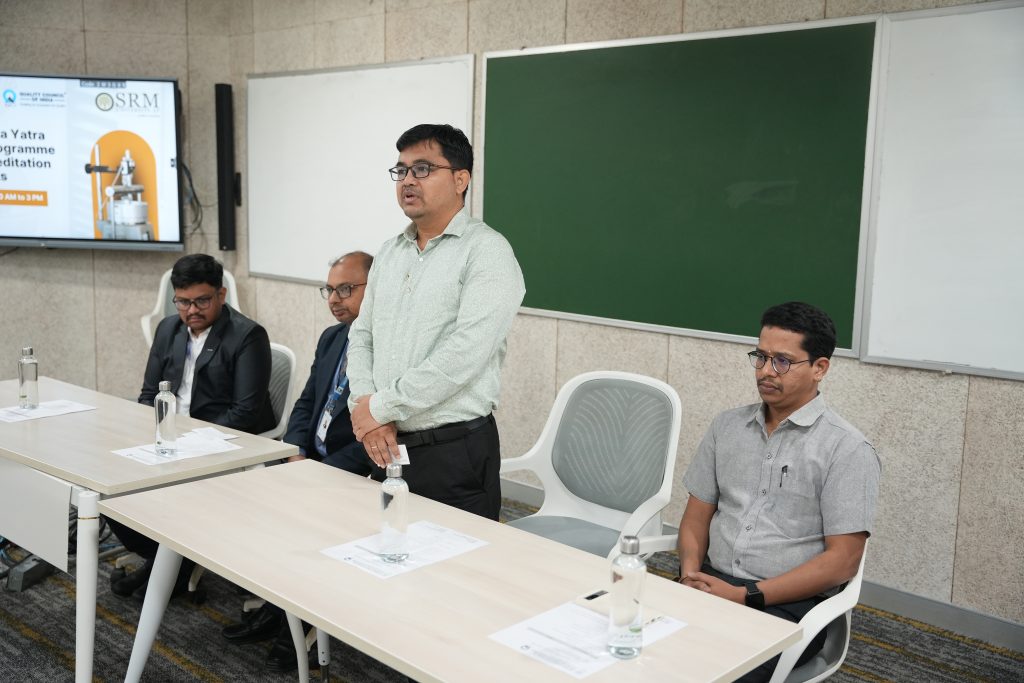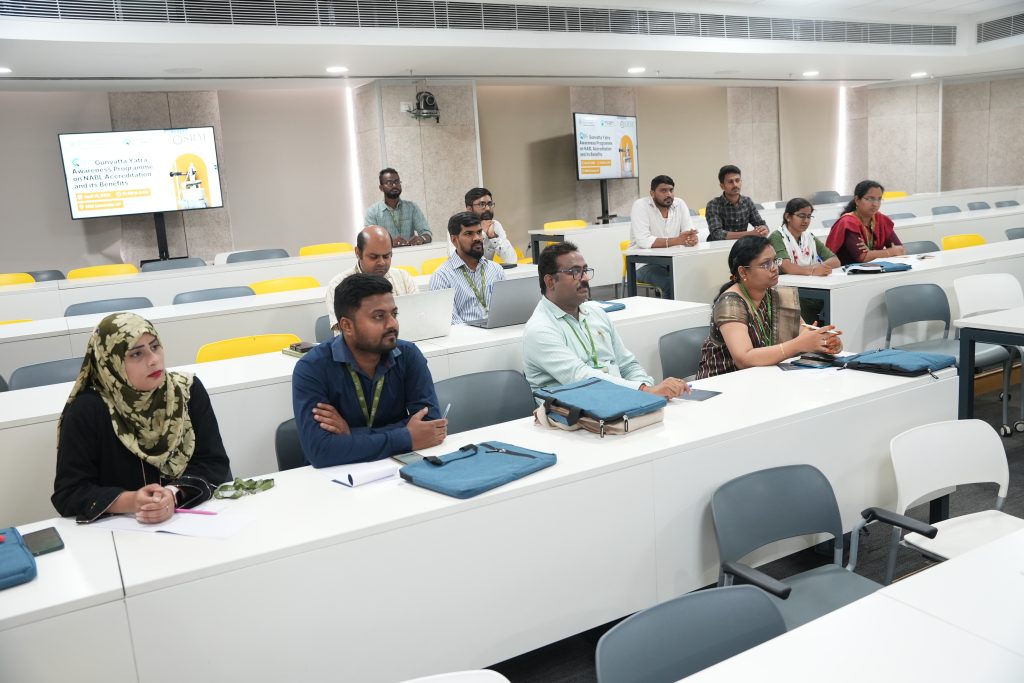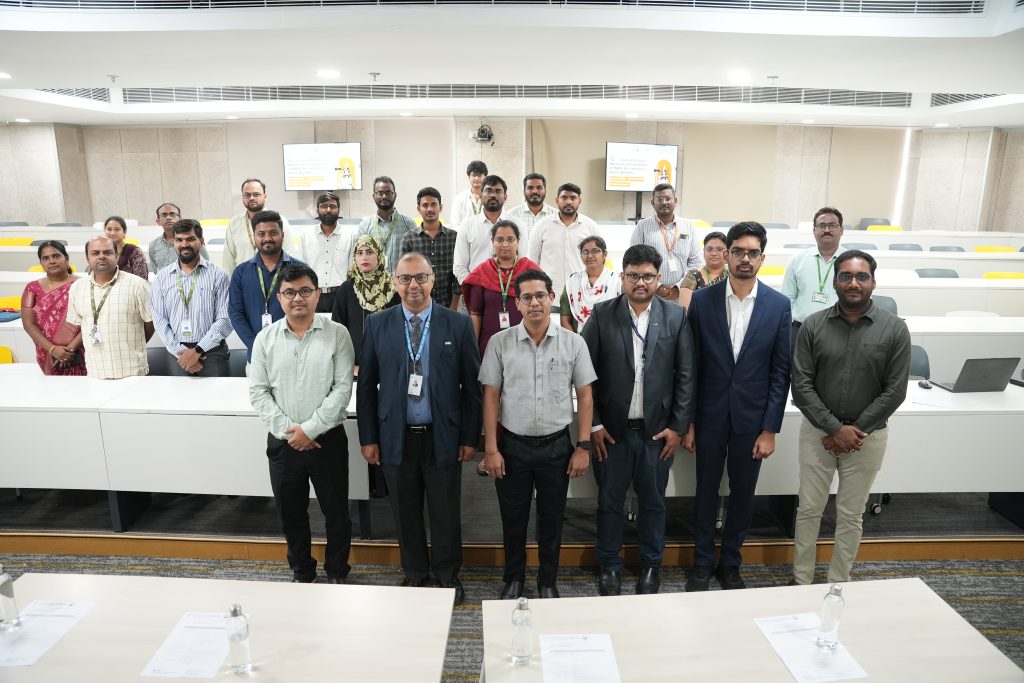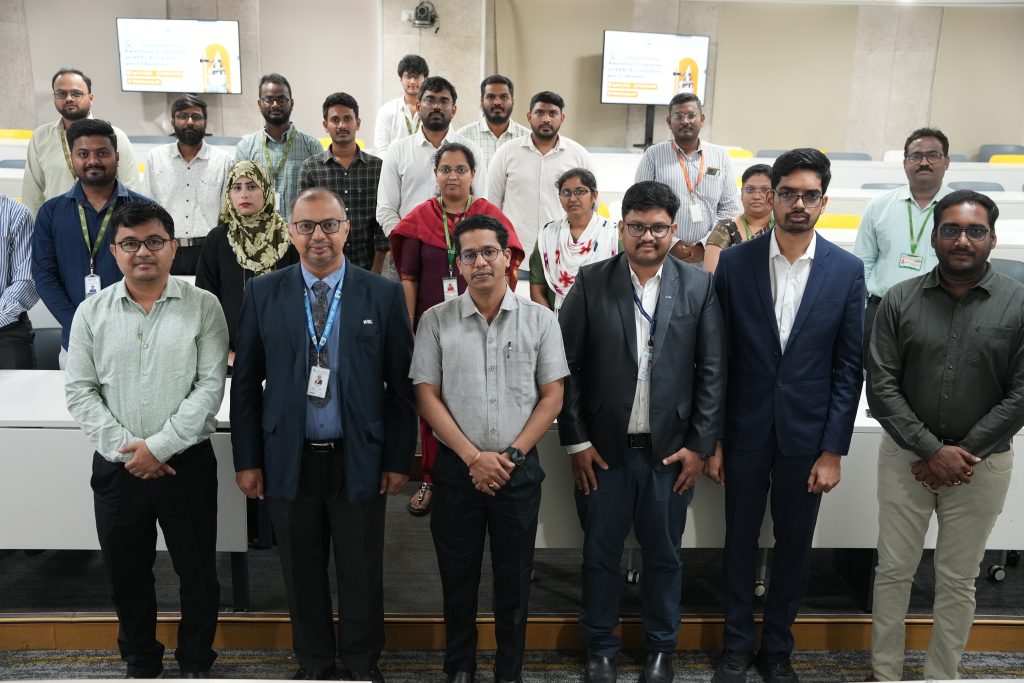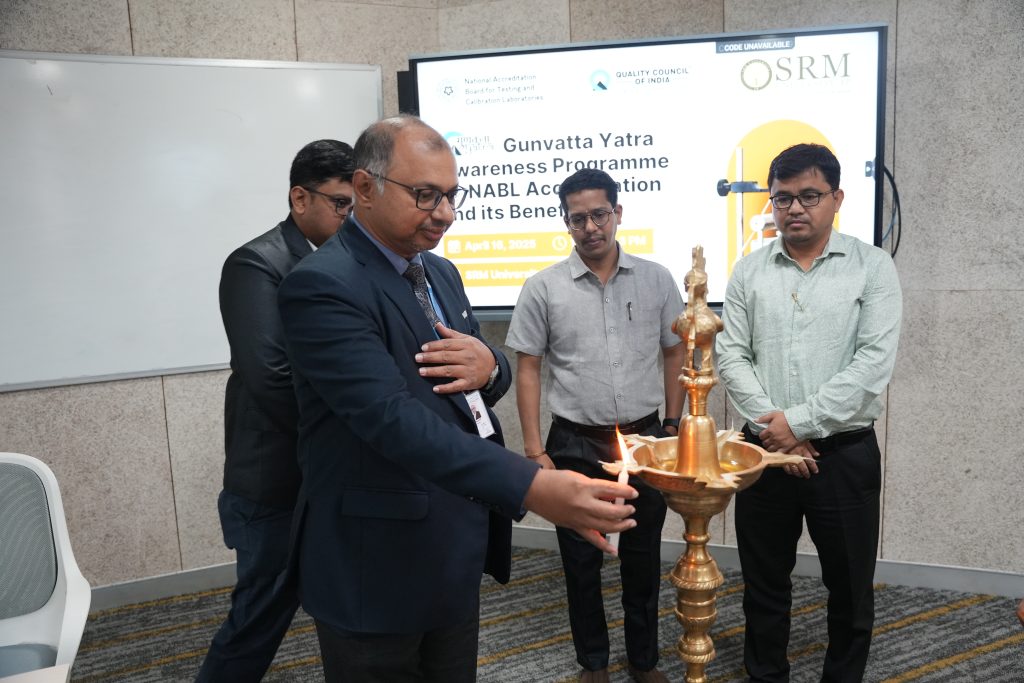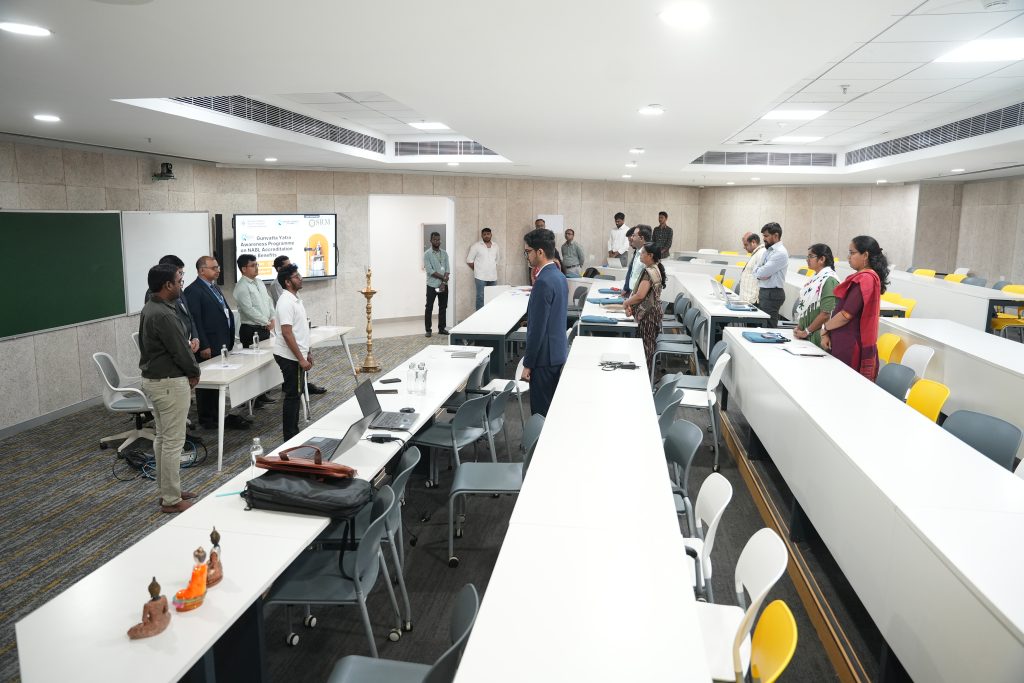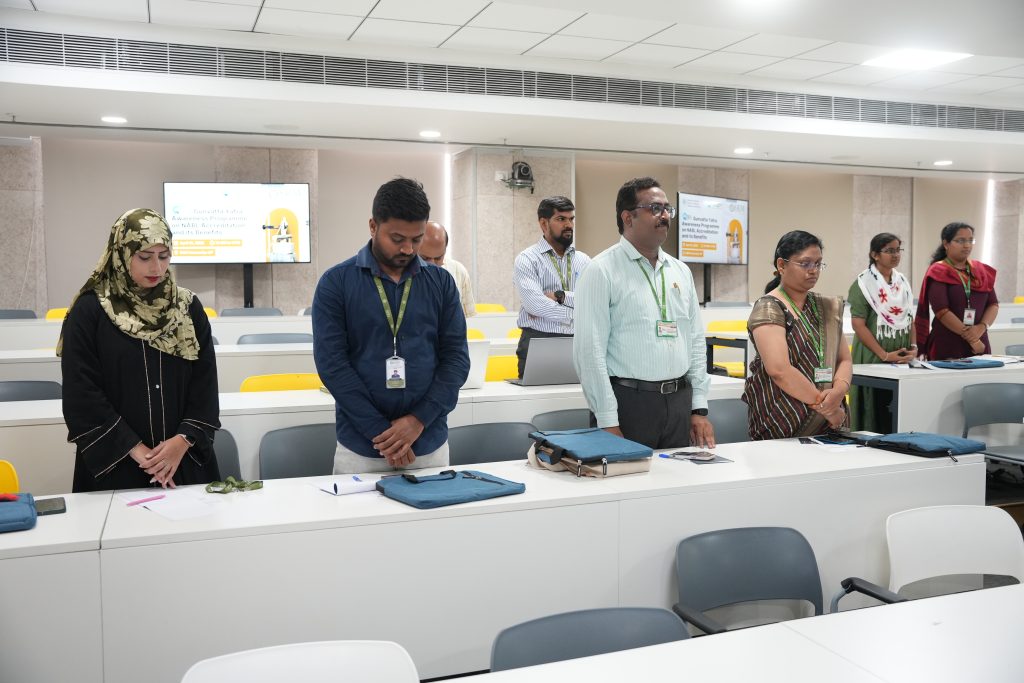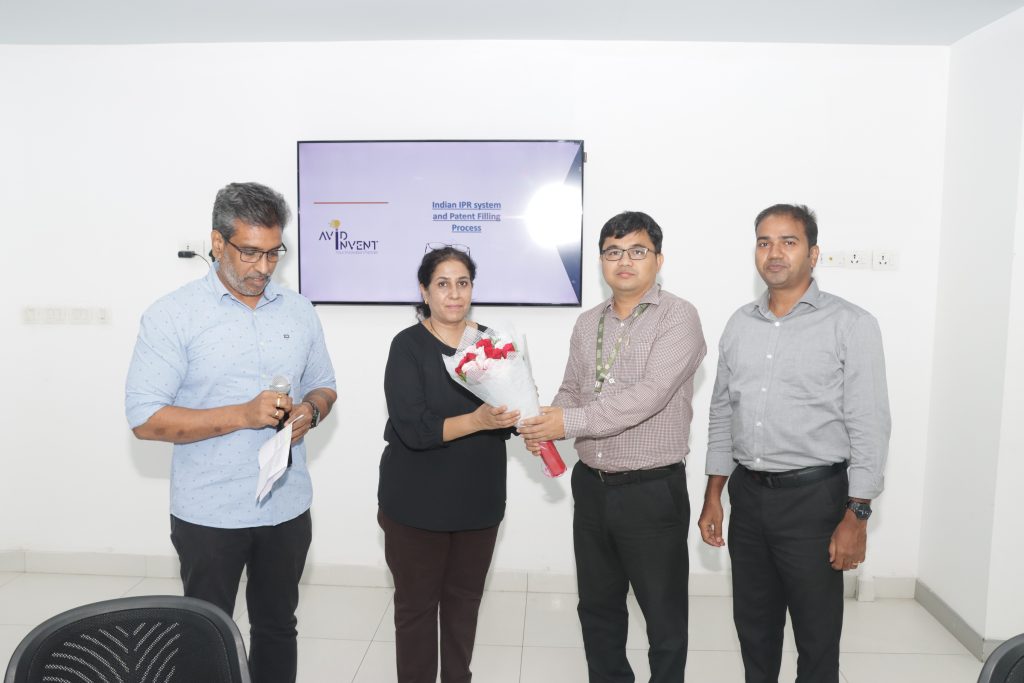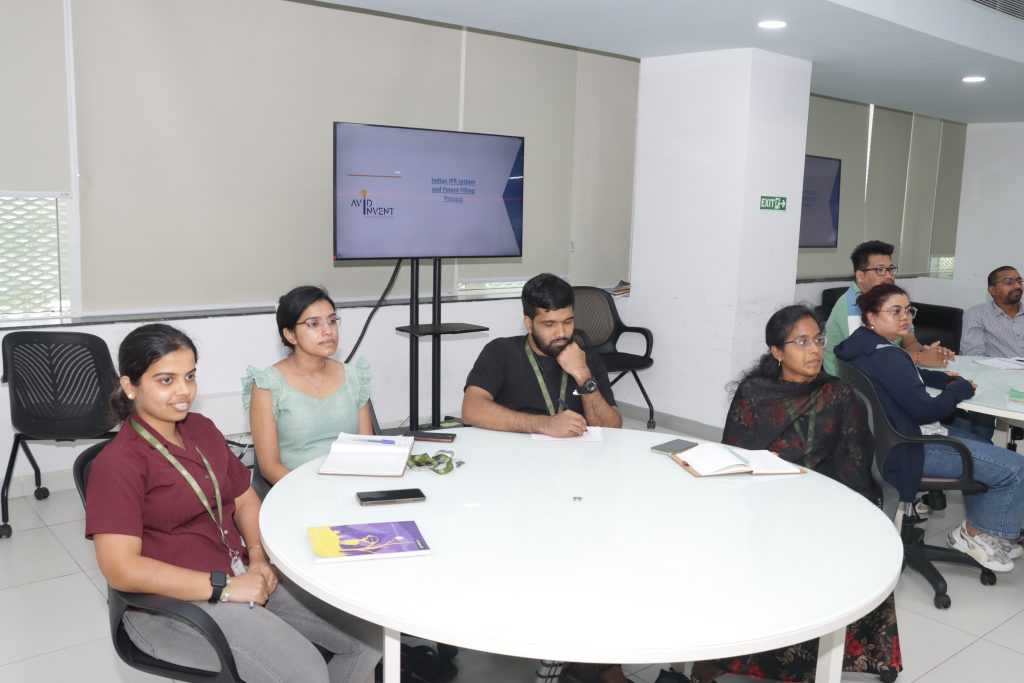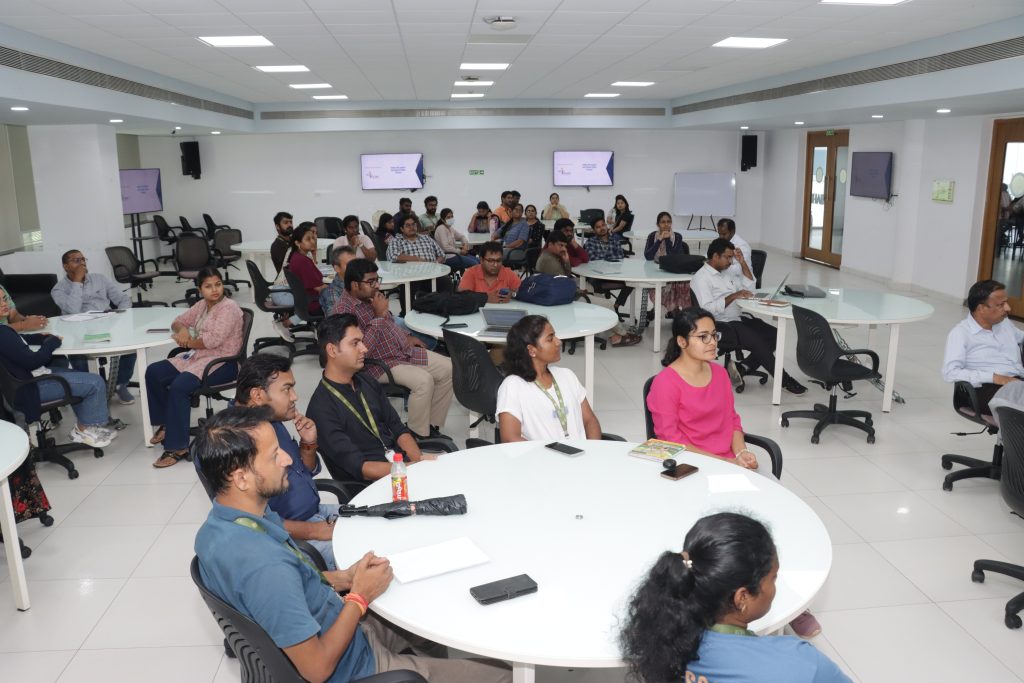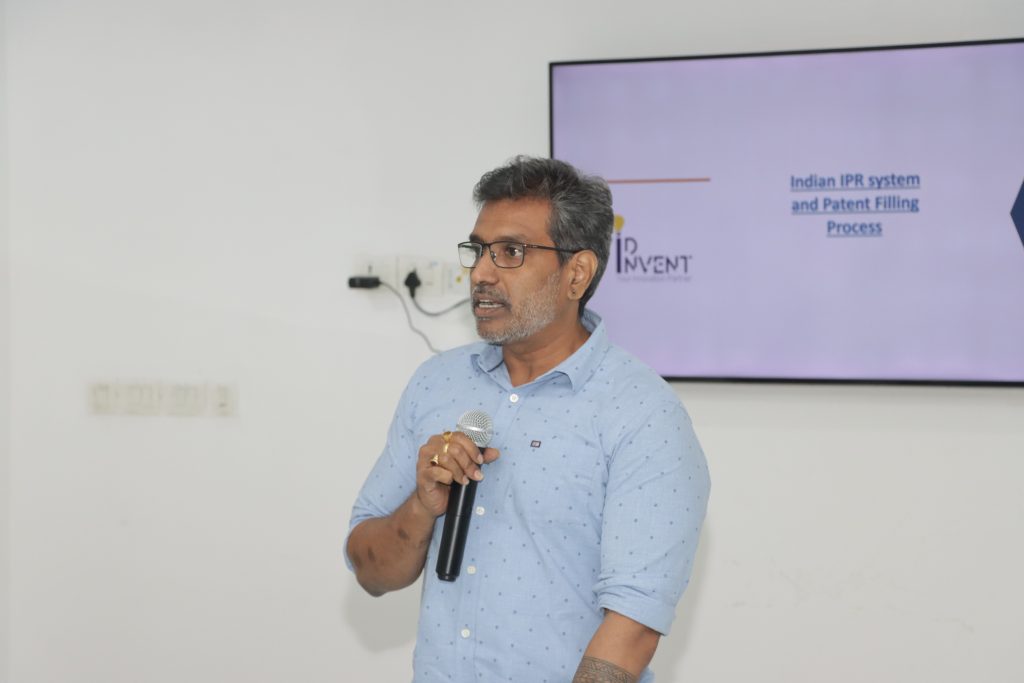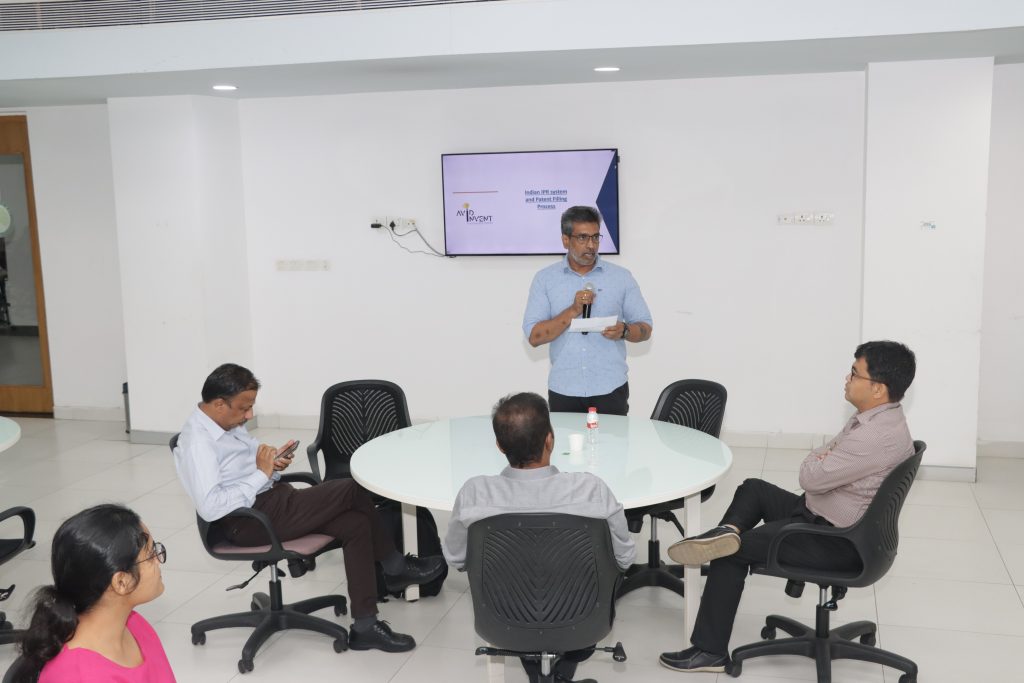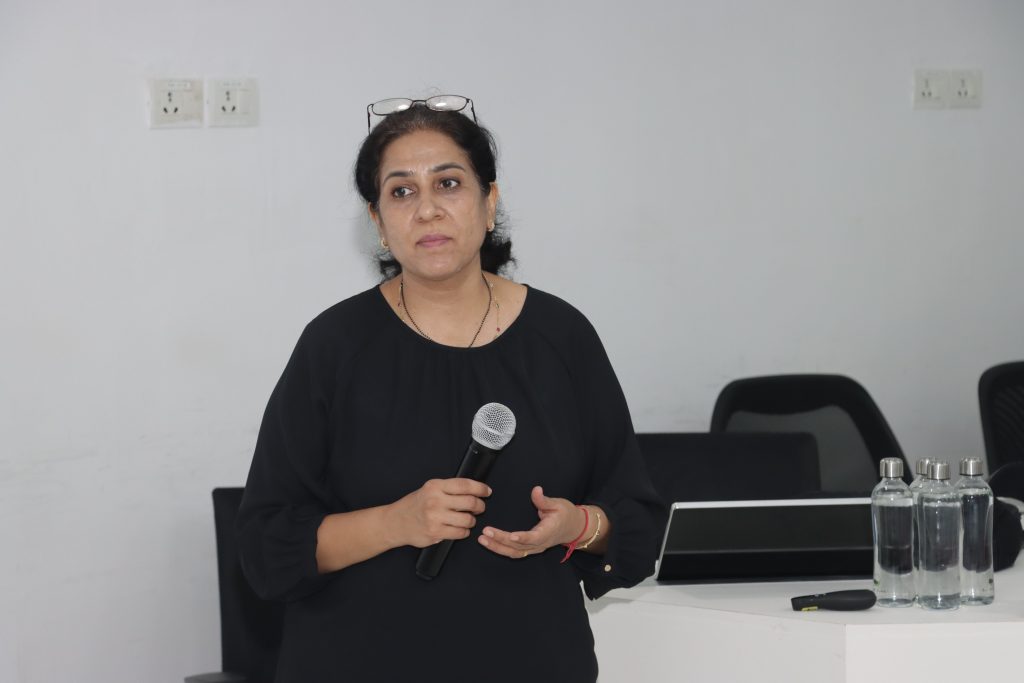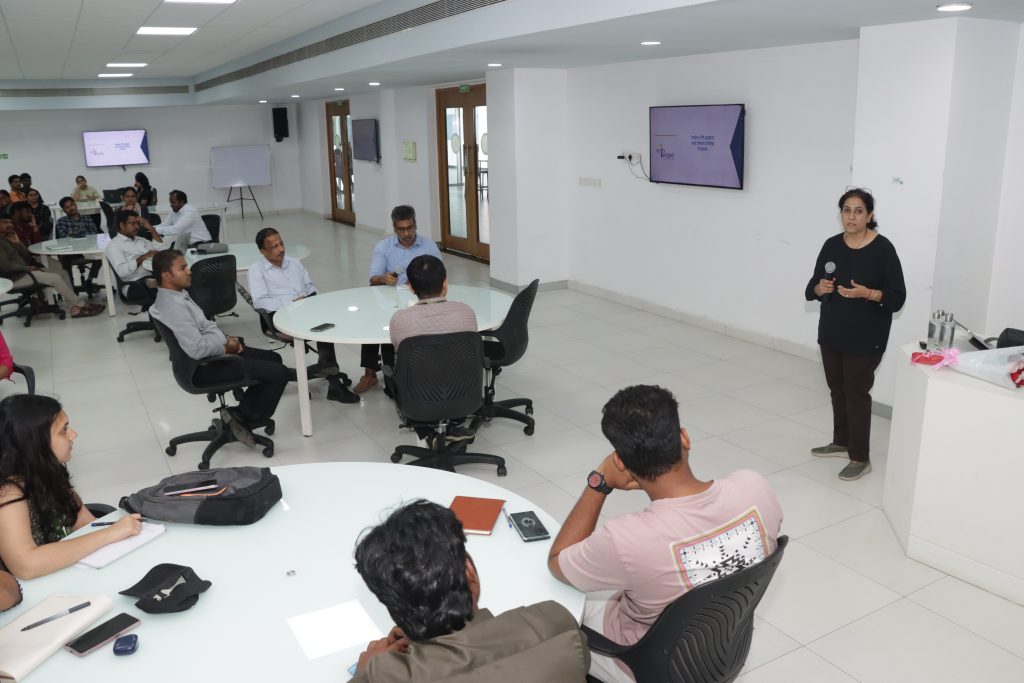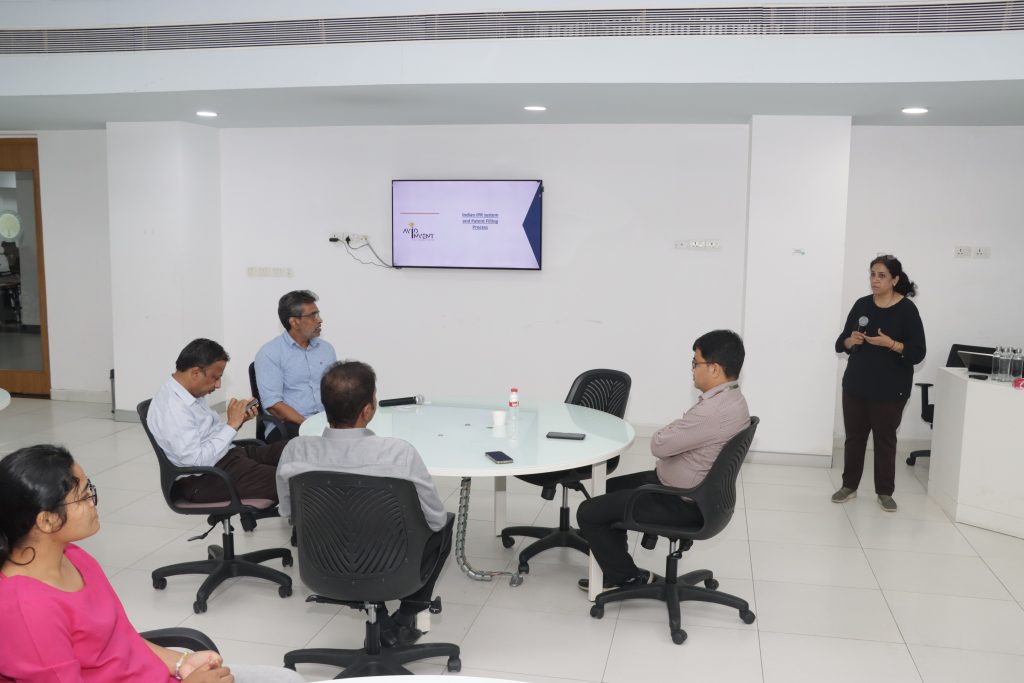- Dr Priyanka Singh and Students Collaborate on Innovative Approach of Image Retrieval April 30, 2025
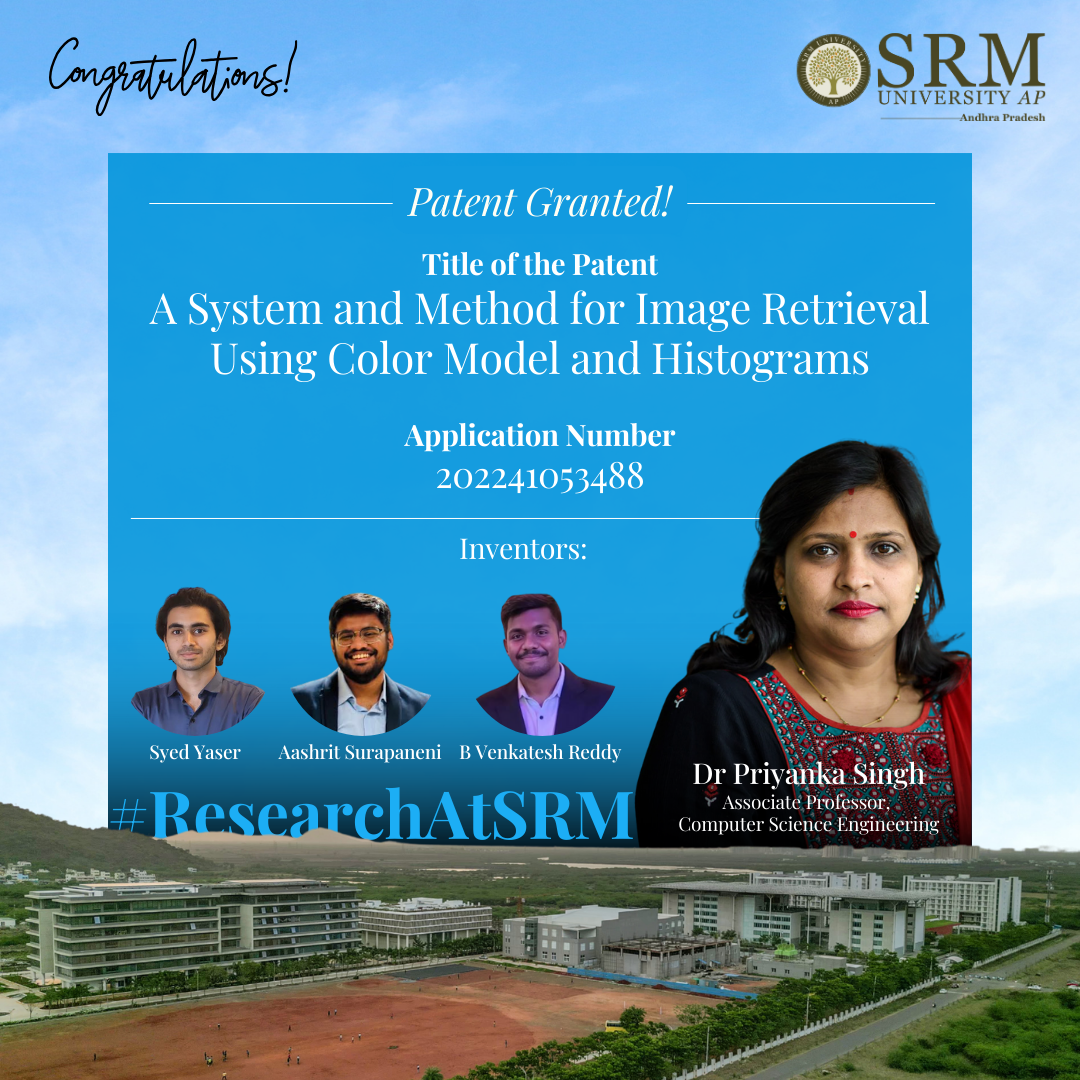 The patent titled “A System and Method for Image Retrieval Using Color Model and Histograms“, with application number 202241053488, presents a novel approach to image retrieval. Authored by Syed Yaser, Sai Aashrit Surapaneni, and B Venkatesh Reddy, with guidance from Dr Priyanka Singh, Associate Professor, Department of Computer Science and Engineering, this work explores the efficient and effective retrieval of images from large databases. The findings contribute significantly to advancements in various fields, including medical imaging and digital libraries.
The patent titled “A System and Method for Image Retrieval Using Color Model and Histograms“, with application number 202241053488, presents a novel approach to image retrieval. Authored by Syed Yaser, Sai Aashrit Surapaneni, and B Venkatesh Reddy, with guidance from Dr Priyanka Singh, Associate Professor, Department of Computer Science and Engineering, this work explores the efficient and effective retrieval of images from large databases. The findings contribute significantly to advancements in various fields, including medical imaging and digital libraries.Abstract:
Content Based Image Retrieval; a widely researched area in the past few decades when it comes to image retrieval and searching images in a large database. The proposed scheme is based on Hue, Saturation, Value (HSV) components of an image and compares images by calculating the distance between histograms is used to implement CBIR using global and local comparison. Histogram of hue and saturation is generated for global comparison. The image in the database which has the minimum distance to our query image is the most similar image of all images. Which means when the distance is 0 the query image is the same as the target image which concludes the image retrieval process. The above algorithm has been completely implemented using python. Python was chosen because of its inbuilt libraries like cv2 for image processing, numpy for mathematical calculations and matplotlib for visualisation
Practical Implementation:
The system can be applied in various fields like medical imaging, digital libraries, surveillance, and e-commerce platforms where quick and accurate image search is necessary. It can also enhance accessibility tools for the visually impaired by recognising images based on content.
Collaborations:
This project was done with the support and guidance of professors and fellow students from the Department of Computer Science and Engineering at SRM University AP, Amaravati. The main team from SRM included:
Syed Yaser
Sai Aashrit Surapaneni
B Venkatesh Reddy
Dr Priyanka
Dr Naushad Varish from Koneru Lakshmaiah Education Foundation, Guntur, also made significant contributions to the work.
Continue reading → - Leatherbound & Glossy: A Shelfside Dialogue April 29, 2025
- Dr Satish Kumar Takes Charge as the New Pro-Vice Chancellor April 29, 2025
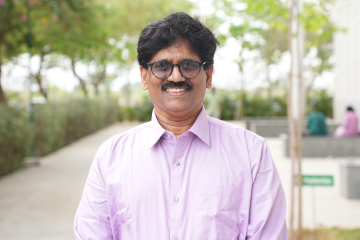 Prof. Ch Satish Kumar has assumed charge as the new Pro-Vice Chancellor of SRM University-AP. Dr Satish Kumar, who was the Vice Chancellor of SRM University, Sikkim has recently been entrusted the charge of Pro-Vice Chancellor of SRM University-AP by the varsity’s management.
Prof. Ch Satish Kumar has assumed charge as the new Pro-Vice Chancellor of SRM University-AP. Dr Satish Kumar, who was the Vice Chancellor of SRM University, Sikkim has recently been entrusted the charge of Pro-Vice Chancellor of SRM University-AP by the varsity’s management.Dr Satish Kumar completed his post-graduation from Andhra University and received his Ph.D. from Punjabi University. He then went on to complete his Master’s in Management at McGill University, Canada and in 2007, he joined the School of Public Health in SRM Group as a Dean.
Dr Satish Kumar commitment to teaching, research, and administration, gradually led to his progress in senior leadership roles. In 2015, he joined SRM University, Sikkim where he initially took on the role of University Registrar before being promoted to Vice-Chancellor.
With over four decades of experience in higher education and public health Prof. Satish is the belief that the purpose of Education exceeds beyond mere dissemination of knowledge, education should drive meaningful change within the society.
Continue reading → - Gunvatta Yatra Awareness Programme on NABL Accreditation April 29, 2025
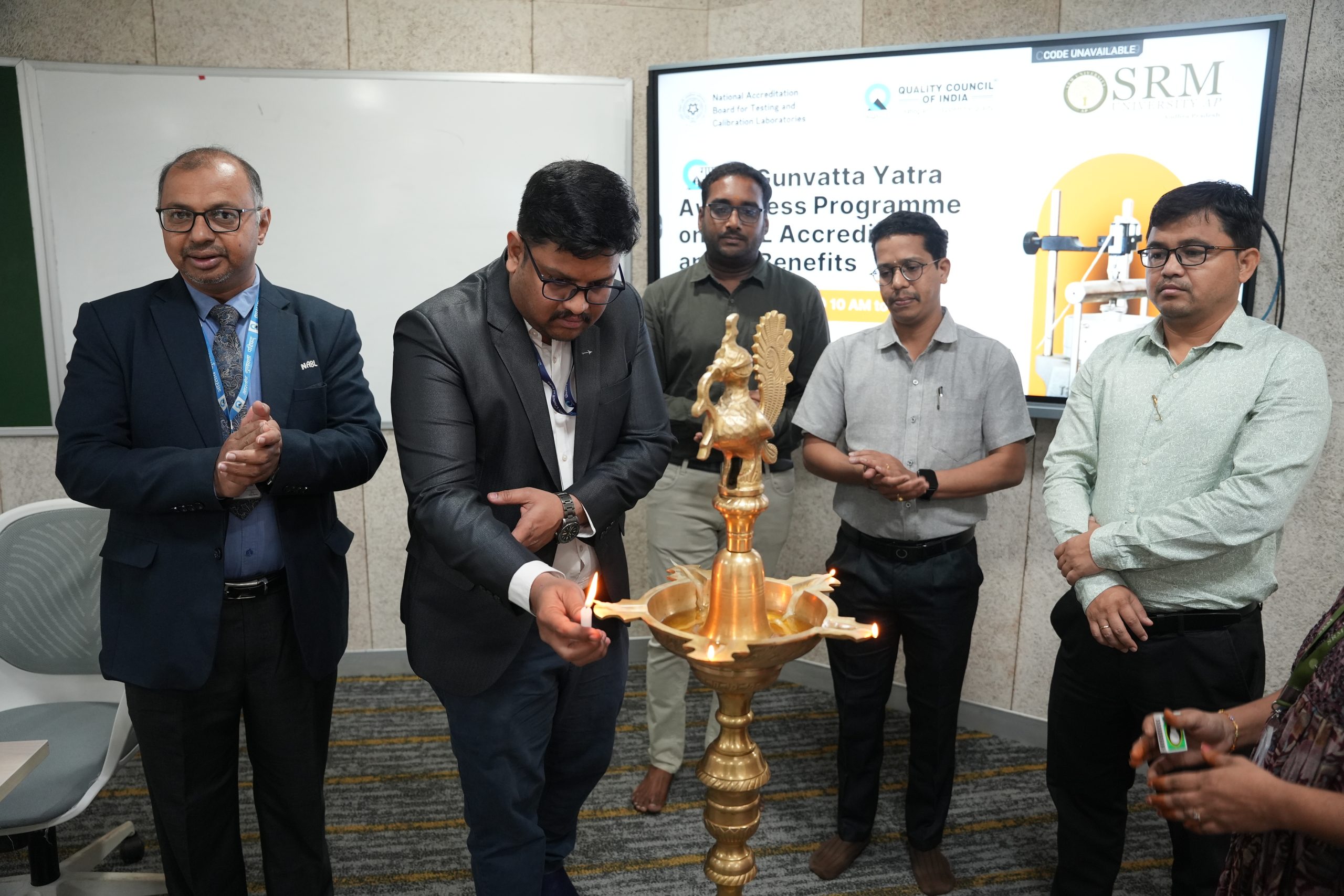 SRM University, Andhra Pradesh successfully hosted a significant one-day awareness workshop on NABL accreditation as part of the nationwide Gunvatta Yatra initiative. The event, organised by the Quality Council of India (QCI) and the National Accreditation Board for Testing and Calibration Laboratories (NABL), brought valuable knowledge about quality standards and accreditation processes directly to our campus.
SRM University, Andhra Pradesh successfully hosted a significant one-day awareness workshop on NABL accreditation as part of the nationwide Gunvatta Yatra initiative. The event, organised by the Quality Council of India (QCI) and the National Accreditation Board for Testing and Calibration Laboratories (NABL), brought valuable knowledge about quality standards and accreditation processes directly to our campus.Gunvatta Yatra is an important programme, designed to elevate quality standards across healthcare, laboratories, and MSMEs throughout India’s Tier-2, Tier-3 cities and rural areas, focused specifically on NABL accreditation processes and benefits. The workshop began with an inauguration hosted by Dr Pranav from the Department of Civil Engineering. The event started with traditional lamp lighting by dignitaries from QCI Bangalore, the Dean of Research, and the HOD of Civil Engineering, followed by an invocation song that set a positive tone for the day’s proceedings.
Dr Ranjit Thapa, Dean of Research delivered the welcome address. He emphasised that despite being a young institution, SRM AP has established itself as a research-intensive university with substantial laboratory facilities and expressed his hope to continue this momentum in the future. He articulated the huge need for the research ecosystem in Andhra Pradesh, noting the requisite for expanded laboratory infrastructure, advanced equipment, and enhanced research support throughout the region.
Mr Srikanth R, Joint Director at NABL with an impressive 30 years of professional experience in quality assurance offered comprehensive insights into the purpose and importance of laboratory accreditation. He then explained how NABL effectively helps laboratories implement international standards and detailed the recent establishment of NABL’s regional office in Bangalore to better serve southern India. Mr Srikanth emphasised accreditation’s critical role as a tool for removing technical barriers in laboratory operations and shared the significant achievement of having 9,100 laboratories accredited across India under NABL’s rigorous standards.
Following this, MrbSreeram Pinnamaraju, Assistant Director at QCI/NABL, outlined the workshop’s comprehensive agenda covering accreditation courses, application procedures, benefits of becoming accredited, and pathways to becoming an accreditor. His said that the practical, process-oriented presentations would provide participants with actionable knowledge for implementing accreditation standards within their own institutions.
As part of the broader Gunvatta Yatra movement, this workshop marked a significant step in building quality awareness and institutional capacity across India. It also reinforced SRM AP’s unwavering commitment to promoting research excellence and adherence to quality standards.
Continue reading → - IPR & Commercialisation Awareness with Dr Puneeta Arora April 29, 2025
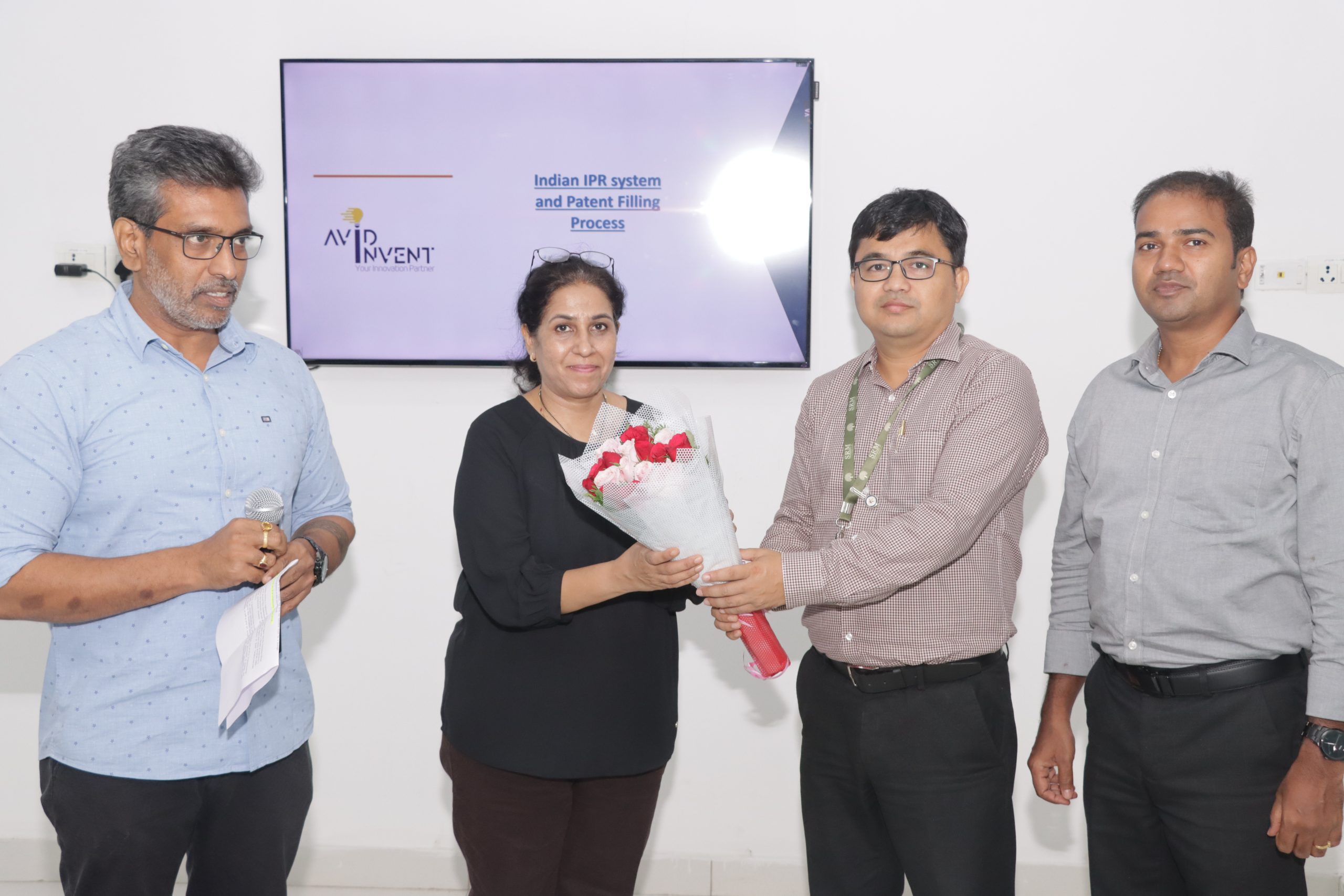 A workshop on “IPR & Commercialization Awareness” was organised jointly by the Technology Transfer Cell and the Office of Dean Research. The session was led by Dr Puneeta Arora, Founder of AvidInvent, a registered Indian Patent Agent, and a seasoned expert in patent law and innovation strategy. The event aimed to raise awareness on the protection of Intellectual Property Rights among researchers.
A workshop on “IPR & Commercialization Awareness” was organised jointly by the Technology Transfer Cell and the Office of Dean Research. The session was led by Dr Puneeta Arora, Founder of AvidInvent, a registered Indian Patent Agent, and a seasoned expert in patent law and innovation strategy. The event aimed to raise awareness on the protection of Intellectual Property Rights among researchers.The workshop commenced with an introduction to the fundamentals of IPR and the importance of protecting innovations with the help of mechanisms like design registration, copyrights, patents, and more. Dr Arora laid emphasis on protecting your innovations from the ideation stage and discussed the filing of provisional patents. She also provided a step-by-step breakdown of the Indian patent application workflow, along with an explanation of PCT and Conventional Applications for researchers looking to file patents abroad.
The session addressed crucial aspects of patentability, such as the importance of novelty, the concept of non-patentable subject matter, prior art, and obviousness. Dr Arora contextualised these concepts with the help of real-world examples and explained how strategic thinking can influence patenting decisions. Additionally, a dedicated segment on IPR in the life sciences was held, which focused on elements specific to the fields of agriculture, wellness, medical sciences, etc., with the help of case studies. This offered valuable insight to participants with backgrounds in biosciences and biotechnology.
The workshop concluded with an interactive Q&A session, where Dr Arora had a discussion with participants on their personal research projects and potential IP applications. Dr Arora was felicitated by Prof. Ranjit Thapa, Dean Research, in recognition of her invaluable contributions. The workshop encouraged participants and raised awareness on IPR, patent literacy, and commercialisation strategies.
Continue reading →



